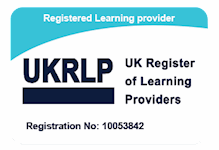
NCFE Level 3 Certificate in Principles of Business Administration
Extra Discount Up to 20% | Accredited by NCFE & CACHE | Unlimited Access for 365 Days
South London College
Summary
Start Now for ONLY £35!
INSTALMENT PAYMENT OPTION AVAILABLE!
Enquire Now!
- Exam(s) / assessment(s) is included in price
- Tutor is available to students
- TOTUM card available but not included in price What's this?
Overview
**Time is running out! Get Up to 20% OFF before the offer ends!**
Enquire Now for more details!
NCFE Level 3 Certificate in Principles of Business (RQF) Administration
The NCFE Level 3 Certificate in Principles of Business (RQF) Administration is a comprehensive course designed to provide you with a sound knowledge of how to carry out administrative tasks within an organisation. The course will explore how to plan meetings, manage information and maintain administrative services. You will acquire the relevant knowledge in communication systems and how to contribute to departmental and organisational change. It is an excellent choice of course for anyone who wants to have a career in business administration. You can enhance your knowledge and expertise in business communication and administration through this course.
The NCFE Level 3 Certificate in Principles of Business (RQF) Administration will give you a sound understanding of administrative best practices within a business organisation. Business administrative practices are crucial to the overall success of a company and has to be carried out properly.
The course will also delve deep into business practices and principles and how to apply these elements successfully in your job role. You will gain specific skills required to work in business administration.
Click 'Enquire NOW' for more information!
Why study at South London College?
South London College offers the most convenient path to gain recognised skills and training that will give you the opportunity to put into practice your knowledge and expertise in an IT or corporate environment. You can study at your own pace at South London College and you will be provided with all the necessary material, tutorials, qualified course instructor, narrated e-learning modules and free resources which include Free CV writing pack, free career support and course demo to make your learning experience more enriching and rewarding.
Eligible for TOTUM card - TOTUM is the #1 student discount card and app giving you access to exclusive student deals on food and fashion, tech and travel and everything in between.
'ENROL NOW' Hurry up!
GET STARTED TODAY!
Qualification
Level 3 Certificate in Principles of Business (RQF) Administration
Course media
Description
COURSE CURRICULUM
★ MODULE 01 : Principles of Business [L/507/4329]
- Principles of Business – Part 1
- Principles of Business – Part 2
★ MODULE 02 : Principles of Business Communication and Information [T/507/5779]
- Introduction
- Negotiating in a business environment
- Approaches to negotiation
- Why is negotiation important?
- Types of presentations
- Delivery methods when giving presentations
- Feedback from presentations
- Resources for presentations
- Best practice when delivering presentations
- Different types of documents produced by businesses
- Document styles and characteristics
- Designing quality documents
- Factors to take into account when creating documents
- Data protection legislation
- The data protection act
- Techniques used when creating accurate documents
- Storing documents and information
- Resources for producing documents
- Selecting sources of information
- Using charts, images and illustrations
- Information systems development
- Information system benefits
- Information system limitations
- Legal requirements for information systems
- Methods of communication
- Factors affecting the choice of communication
- Grammar and punctuation
- Planning communication successfully
- Overcoming barriers to communication
- Communicating effectively with body language
- Proof reading documents
★ MODULE 03 : Principles of Administration [M/507/5781]
- Introduction
- Legal requirements of office management
- Ordering products and services
- Product and services
- Dealing with enquiries
- Establishing office management procedures
- Managing office resources
- Monitoring and managing workflows
- Employee support and welfare
- Risk assessments, health and safety
- Accident and emergency procedures
- Taking minutes
- The role of the meeting planner
- Planning meetings to meet aims
- Information and resources required for meetings
- The purpose of briefing the chair
- Hosting a meeting
- Legal implications of minutes
- Making notes in meetings
- Using targets to manage workloads
- Respecting and valuing those in a team
- Making use of each person’s strengths
- Allocating work to team members
- Quality management for performance
- Identifying improvement needs
- Events in business
- Information needed to organise events
- How to plan an event?
- Information before, during and after an event
★ MODULE 04 : Understand how to Improve Business Performance [J/507/4331]
- Introduction
- Problem-solving and change management techniques
- Problem-solving constraints
- The role of stakeholders in solving issues
- The decision making process
- Implications of trying to solve business problems
- The benefits of continuous improvement
- Continuous improvement techniques
- Cost-benefit analysis
- Types of feedback
- Dealing with feedback
- Effective leadership in times of change
- How stakeholders manage change
- Change management models
- Risks when implementing change
- Crisis management
- Barriers to change and how to deal with them
- Evaluate change management projects
★ MODULE 05 : Understand Equality, Diversity and Inclusion in the Workplace [K/507/4337]
- Introduction
- Equality, diversity and inclusion
- Key terms
- Equal opportunities legislation
- Consequences of equality breaches.
- Nominated responsibilities regarding equality, diversity and inclusion
- Forms of discrimination and harassment
- Characteristics that support equality and diversity
- The importance of displaying behaviour that supports equality, diversity and inclusion
★ MODULE 06 : Understand how to Manage Performance and Conflict in the Workplace [D/507/5646]
- Introduction
- Benchmarks used in performance management
- Quality management techniques
- Constraints when amending priorities and plans
- Discipline, grievance and underperformance
- Identifying causes of underperformance
- Making individuals aware of underperformance
- Addressing issues that affect performance
- Agreeing actions to deal with underperformance
- Conflict management
- Consequences of unresolved issues
- External arbitration to resolve conflict
★ MODULE 07 : Principles of Leadership and Management [F/507/4330]
- Introduction
- Setting objectives when decision making
- The importance of analysing your decisions
- Gathering information
- Aligning decisions with policies and values
- Validating information
- Addressing issues that affect achievements
- Leaders and managers
- Leadership styles
- Theories of motivation
- Management roles and responsibilities
- How managers ensure objectives are met
- Contributing to the achievement of an organisation’s mission as a manager
- Theories and models of management
- How theories guide a manager’s actions
- Constraints imposed by budgets
- Waste management
- Business objectives and performance measurement
- Performance measurement systems
- Key performance indicators
- Monitoring and reporting on business performance
- Management information systems and accounts
- Outcomes and outputs
Course Description
- Qualification type: Level 3 Certificate
- Qualification title: NCFE Level 3 Certificate in Principles of Business (RQF) Administration
- Accreditation status: Accredited
- Level: 3
- Guided Learning Hours (GLH): 210
- Total Qualification Time (TQT): 230
- Qualification number (QN): 60170748
Access Duration
The course will be directly delivered to you, and you have 12 months access to the online learning platform from the date you joined the course. The course is self-paced and you can complete it in stages, revisiting the lectures at any time.
Method of Assessment
To be awarded the NCFE Level 3 Certificate in Principles of Business (RQF) Administration, learners are required to successfully complete 3 mandatory units and 4 optional units.
Internally assessed and externally moderated portfolio of evidence. Each learner is required to create a portfolio of evidence, which demonstrates the achievement of all the learning outcomes and assessment criteria.
Certification:
Those who successfully complete the course will be awarded the NCFE Level 3 Certificate in Principles of Business (RQF) Administration Certificate. The qualification will make you valuable to employers, and your motivation at gaining new skills will be recognised.
Awarding Body:
CACHE are continually investing in high quality qualifications for the care and education industry, making them the UK’s leading sector specialist. Developed by experts, CACHE qualifications help millions of learners to raise professional standards across the sector. As a result, CACHE has gained a deserved reputation for excellence and leadership.
NCFE is a National Awarding Organisation, passionate about designing, developing and certificating diverse, nationally recognised qualifications and awards. These qualifications contribute to the success of millions of learners at all levels, bringing them closer to fulfilling their personal goals. Last year alone, over 340,000 learners from over 2,000 colleges, schools and training organisations chose NCFE as the Awarding Organisation to help them move their careers forward.
Requirements
Learners will need to be over the age of 19, and must demonstrate the following:
- Vocational or academic qualification at Level 2 or higher
- Basic level of literacy, numeracy and ICT ability
In order to qualify for the programme, you will need to submit a completed application form which will be provided to you. This form should be provided to us within a month of enrolment, along with the following;
- Proof of educational qualifications
- You must provide an identification document such as a passport or a driving license.
Upon submission of the documents, your application will be reviewed.
Career path
Once you successfully completed the NCFE Level 3 Certificate in Principles of Business (RQF) Administration, you will gain an accredited qualification that will make you a marketable candidate in the following sectors.
- Operations Manager - £35,029 per annum
- Administrative Manager - £24,474 per annum
- Business Manager - £35,165 per annum
- Team Leader - £25,239 per annum
Questions and answers
Reviews
Currently there are no reviews for this course. Be the first to leave a review.
Legal information
This course is advertised on reed.co.uk by the Course Provider, whose terms and conditions apply. Purchases are made directly from the Course Provider, and as such, content and materials are supplied by the Course Provider directly. Reed is acting as agent and not reseller in relation to this course. Reed's only responsibility is to facilitate your payment for the course. It is your responsibility to review and agree to the Course Provider's terms and conditions and satisfy yourself as to the suitability of the course you intend to purchase. Reed will not have any responsibility for the content of the course and/or associated materials.









